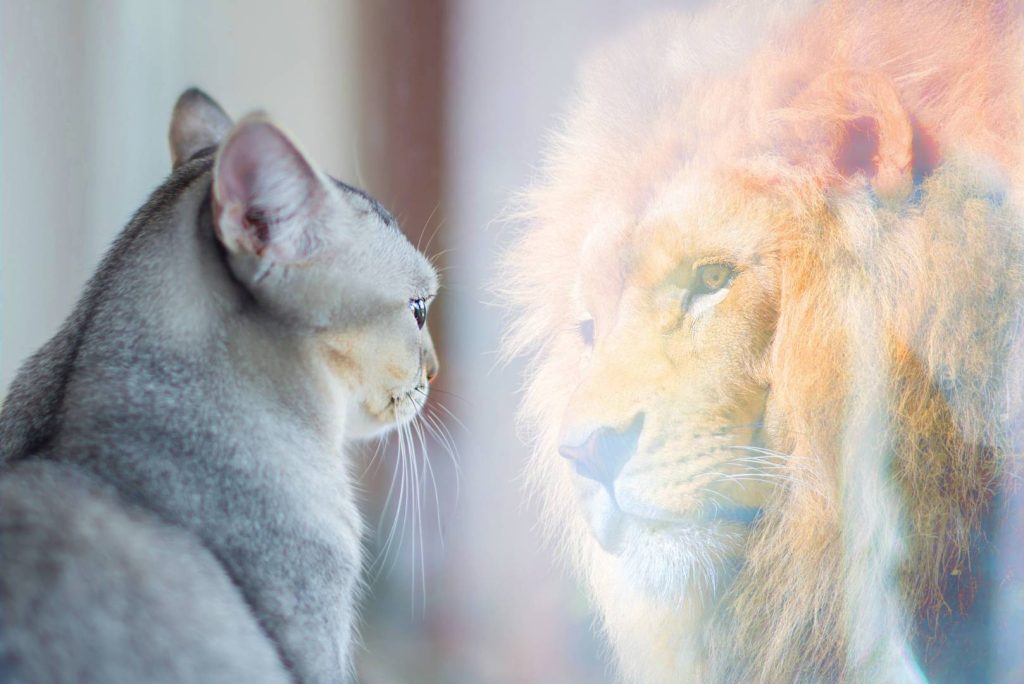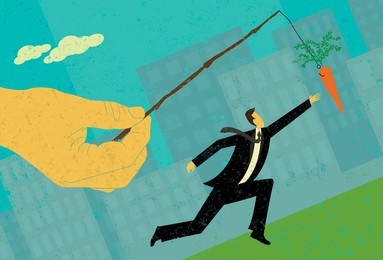What do you desire? In today’s modern world, there are more things than ever to strive for. Money, success, fame, attention, traveling, entertainment, and material possessions. It’s limitless what you can aim to buy, gain, or acquire.
That should scare you.
Why? Because no matter what you get, there will always be more on offer, which can consume you. The Buddha already knew this thousands of years ago. He stated that suffering is caused by desire and attachment.
But what did he mean by this? Is all suffering bad? And what can you do to prevent desire from causing you suffering?
In this post, I’ll explore all these questions in detail. So, grab a cup of your favourite hot beverage, and let’s get started.
What is Desire?

The answer seems obvious, right? Desire is when you want something. It could be an object, person, or outcome. When somebody is in a state of desire, they are in a state of longing. What they want is on their mind all the time.
They crave and dream of it.
Believing that they will feel fulfilled and happy once it’s in their possession. Imagine a child obsessed with getting a new toy. Somebody who always wants the next iPhone. Or a millionaire consumed with becoming a billionaire.
Whilst it’s normal and natural to desire, it can cause you harm.
Let’s look at how.
Why Does Desire Cause Suffering?

When you desire something, you’re living for the future. Hoping that when you get that job, house, car, or relationship, you’ll be happy. Then when you get it, it’s not long before you crave something else.
This constant striving leads to you missing the present.
You miss the here and now. You miss life. It’s a never-ending loop that causes anxiety and unconsciousness. You’re no longer aware or engaged with what’s meaningful. Too focused on the future, looking for fulfilment.
But it never arrives as new desires come up, leaving you always feeling unsatisfied.

You never reach the carrot on the end of the stick.
The other issue is your attachment to outcomes. Think of a time you desired something but didn’t get it. How did you feel afterward? Lost, sad, frustrated, disappointed, deflated? You’re not the only one. There have been many times when I suffered due to things not turning out as expected.
Business ideas that never worked out. Relationships that didn’t last. Big dreams and ambitions came crashing down. At the time I was devastated. This is no doubt a normal reaction that many of us have. But it’s due to our unhealthy craving and attachment to desires.
When they don’t get fulfilled, it can leave us feeling broken, distraught, annoyed, or lacking completeness. Despite these things being impermanent and out of our control, we forget that. Instead, we pin all our hopes, dreams, and happiness on those desires.
This desperate clinging is what causes us suffering.
Can you relate?
The final point is when you pursue and gain your desires, it can influence how you act. You might treat others badly, and become irrational, arrogant, or egotistical. I’m sure we’ve all met someone who acted in such ways.
Do you think they were happy?
Is All Desire Bad?
Absolutely not. Humans have psychological, safety, and emotional needs. We also want to feel worthwhile, develop, and progress. So, it’s natural to want healthy relationships. Or things that make you feel safe, proud, and accomplished. It’s also positive to strive toward success and your goals.
How then can you tell what desires cause suffering and which ones are healthy? The Buddha distinguished two types: 1) Desire that arises from ignorance and delusion. 2) Desire that arises from wisdom and intelligence.
What do you think would be an example of each?
You could say seeking material possessions or wealth for happiness is ignorant and delusional. Whereas desiring to help others, improve yourself, or appreciate the world is wise and intelligent. That’s true, but it’s also not that simple.
As I explained earlier, the problem is the desperate clinging and grasping to desires. Seeking fulfilment from a new car, relationship, holiday, helping others, or self-development are all the same.
That doesn’t mean stop buying things, traveling, loving and helping people, or trying to improve yourself. But don’t expect them to bring you everlasting happiness. That is ignorant and delusional. And don’t get attached to outcomes that may never happen or are not guaranteed to last.
I know that may sound hard to do, but it’s possible.
How Chris, how?
Let’s look at that next.
How Can You Suffer Less from Desire?

Recognise Impermanence
Recognise that everything is impermanent. Technology breaks, relationships finish, careers end, and we will all grow old and die. “Geez, that’s depressing Chris”. Hold the phone, let me finish. I’m not telling you this to depress you, quite the opposite.
Let me explain.
Expecting things to be permanent causes suffering. Why? We want a happy marriage, a successful career, or our loved ones to be around forever. So, we grasp, cling to, and fear losing them. Then when it happens, the agony and pain can overwhelm us.
But by recognising and accepting that they will end, you’ll be more prepared. It doesn’t mean it will be easy but at least you know the reality. Instead of clinging and living in delusion.
Recognising impermanence is also useful when things are going bad. Illness, sadness, anxiety, and grief will also come to an end. Say to yourself, “this too shall pass”. The pain and suffering will change, just as everything in life does.
Cultivate Gratitude
Understanding and accepting impermanence helps you to cultivate gratitude. You’ll be grateful for what you have now in the present. Savour the precious moments you spend with loved ones. Feel proud of the success you earned. Appreciate the beauty of the world. Be attentive and supportive towards your partner.
You can develop gratitude and it doesn’t take much effort. Reflect and write down what you’re grateful about. This empowers you to feel a deeper sense of happiness. One that stems from the present reality instead of an imagined future.
Why not try this exercise now?
“Embrace the gifts of life, they won’t be here forever.”
– Christopher Briggs
Find Inner Contentment
It took me a long time to be content with myself. To understand, accept, and love who I am. Before that, I would look for happiness elsewhere. Mostly from friendships and relationships. How do you think that went?
Not well, as you might imagine.
When facing rejection or relationships that didn’t materialise, I became upset. I took everything personally and felt hurt. The problem was that I was looking for validation from others. And hoping that their affection and attention would bring me happiness.
Can you relate? Or have you ever known someone like this?
It’s common. But when you find inner contentment that all changes. You no longer seek desires for fulfilment. Whether that be friends, romantic relationships, wealth, success, or material possessions. Instead, you seek them with no attachment or expectation.
Why? Because you’re confident with who you are. You know your self-worth and don’t need fulfilment from external sources. To start doing this, you need to learn self-compassion.
Need help starting? Read my post: How to Be Compassionate Towards Yourself.
Embrace the Journey
I know it’s cliche to say that but it’s imperative. There will always be something else to buy, do, achieve, or gain. It never ends. I’ve met plenty of people in their 80s who still want to learn, grow, and develop. We need to strive and aim high, it’s in our nature.
What’s the alternative?
Would you really be happy to just sit on a tropical island, sipping a cocktail for the rest of your days? Or would you get bored?
So, be present. Practice mindfulness. Try new things. Challenge yourself.
Recognise there is no final destination. This truth will set you free. Liberating you from believing that the future will give you fulfilment. It won’t and it never will.
Embrace your life journey and relish in each step you take.
“The thirst of desire is never filled, nor fully satisfied.”
— Marcus Tullius Cicero
Desire Doesn’t Have to Cause Suffering
It’s normal to have desires. Humans want to feel like they are learning, growing, developing, and achieving. But if you expect them to bring you happiness and fulfilment, then suffering occurs. You’ll be living for the future, chasing never-ending desires, and missing the present.
During the process, you can act in unfavourable ways. And if you don’t get what you crave, disappointment, frustration, and dissatisfaction can consume you. But this doesn’t have to be the case.
You now have the knowledge.
Recognise that everything is impermanent. Things are always changing. This will help you to be prepared, and cultivate gratitude for the things you have now. They’re precious. Relish in them.
Find inner contentment and be more self-compassionate. When you do, you’ll no longer seek external validation and approval.
Embrace your life journey. Now. In the present moment. Don’t fixate on the future, expecting it to bring fullfiment and happiness. That is delusional. Liberate yourself from that false belief. Stop craving and clinging.
There is always a healthier, more balanced path to choose. Now you know how to walk it. Change your mindset and enjoy living.
Did you find this post useful? I’d love to know in the comments.
Take care of yourselves,
Chris from Mindful Way to Be
